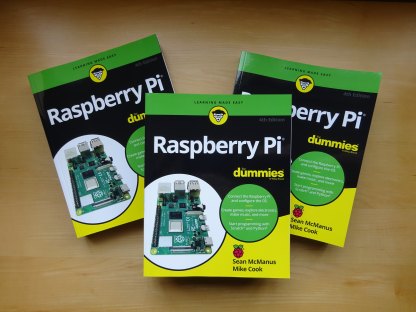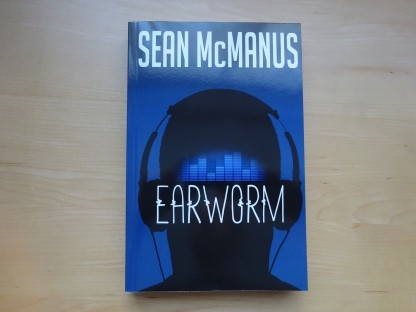
100 Top Tips: Microsoft Excel
Power up your Microsoft Excel skills with this powerful pocket-sized book of tips that will save you time and help you learn more from your spreadsheets.
30 January 2014
One of my new projects this year is starting a Code Club with a local junior school. The deputy head and I were introduced to each other through the Code Club website, which brings together schools interested in running computer clubs with tech-savvy volunteers who would like to help run one. Code Club also provides materials the club can use, including two terms of Scratch tutorials, and projects that teach web design and Python programming.
Out of a year group of 90 children, 60 of them wanted to be members, and got a signed letter from their parents to say they could take part. Unfortunately, we only have room for 24 members. The guideline is 12 children per adult, and my experience has been that it would be difficult to go above this number because there wouldn't be time to get around the group and help everyone when they needed it. The school chose a mixed ability group of girls and boys (equally split), in part according to whether they already benefited from other extra-curricular activities.
Before the Code Club begins, volunteers undergo a police check (a DBS check, which used to be called a CRB check). I arranged my DBS check through Stemnet, which runs an ambassador programme for people in science, technology, engineering and maths (STEM) to help promote these in schools. Stemnet ran an introductory session for new volunteers, and I found this really useful. There was good advice on working with children and young people, and how to work effectively with schools too.
In the first Code Club meeting, the volunteer talks the club (it's not a class!) through the basics of making their first Scratch program, and sharing it on the Scratch website. I really underestimated how excited they would be about this, but they loved the idea that their family and friends would be able to play the games they made. Then the project sheets (I try not to call them work sheets) are handed out, and the children make their first game. From what I've read of other clubs, a project usually takes a session or more, but our club seems to be haring through them more quickly than that. The children have done some Scratch before in their ICT classes, so they have a head start. I'm preparing a few projects ahead, to make sure I'm ready when they're ready.
I've found it useful to run through the projects myself before going into the club. The introductory walk-through only works on the website if you add in a 'when green flag clicked block' to your project, so we did that, and I found it useful to have a rough idea of what the scripts do in the game projects when I'm asked questions in a session. My experience writing Scratch Programming in Easy Steps has been useful because I can quickly spot some common problems (such as variables that are for all sprites when they should be for one, and vice versa). Newcomers to Scratch might benefit by preparing several sessions ahead or learning enough to make their own game, so they can spot common pitfalls more easily, but the most common problems I've seen come from not copying the scripts correctly, or not putting them in the right place. A quick check of the project sheet can quickly clear them up.
The enthusiasm in the group is wonderful. It's particularly nice to see them experimenting, and changing the sprites and backgrounds, and in time I hope they'll start to experiment with the code more too. Some of them rush through it, perhaps trying to finish it first, looking mainly at the scripts in the project sheet, while others work more slowly, reading all the instructions, and often helping each other out. As I go round the room, I talk to them about how the scripts work, too, and explain things like what a variable is to help them understand why it's not working as they expect sometimes.
There's been fantastic support from the school. The deputy head and the administrative officer have put a lot of time into it, experimenting with Scratch outside the sessions, as well as running the group. They tell me they're enjoying it, and are asking me interesting questions about how Scratch works. The head teacher is very supportive of the group too, and other teachers might be popping in from time to time to learn more about it. It's been suggested that the school might embed some of the Scratch projects the group has made on the school website.
I was fortunate to benefit from extra-curricular computer clubs when I was at school. At junior school, we had a Link 480Z computer, and at break times we learned Logo on it and played educational games like Hike, which involved using angles to steer a character on a map between mountains. At secondary school, computer science wasn't officially offered (as opposed to IT), but the IT teacher opened up the computer lab at lunchtimes and taught a group of us GCSE computer science. Both these extra-curricular activities taught me a lot, and helped build the foundations for my career writing about technology. Clubs like this aren't a substitute for ICT teaching on the curriculum, which will become increasingly important from September, but they can be fantastic for nurturing talent, channelling enthusiasm, and providing a place for experimentation.
The school I'm volunteering at was looking for a volunteer for a year before I registered on the Code Club website, and I've been contacted by several other schools since too, who are all looking for volunteers near me. I imagine there is similar demand across the country. If you've got a couple of hours a week, why not see if you can volunteer in a school near you? You can find out more on the Code Club website here.
If you've got any questions about running a Code Club, or would like to share your experiences, feel free to leave a comment below.
Permanent link for this post | Blog Home | Website Home | Email feedback
08 January 2014
The fourth edition of iPad for the Older and Wiser has just been published, updated by Mark Hattersley.
This new edition covers the latest generation of the iPad, the iPad Air and iPad Mini, and also updates the book for iOS7, the latest version of the iPad software.
iOS7 has a more modern look to it than previous versions of the software. I wonder whether the old stationery graphics (the fake paper in Notes, and the fake leather and paper in Calendar) were one of the things that made the iPad approachable for so many people, including those in the older and wiser audience, many of whom skipped getting a desktop computer and went straight to the iPad. There are a few things that niggle me about the new software, such as the removal of the '.com' key on the keyboard which I was using a lot (you can tap and hold the full stop key, but that's slower), and the limit of having 9 icons in a folder shown at once. Over time you get used to these changes, though. The new design is an attempt to fight competition from Android and other devices, so it will be interesting to see if the more modern look helps the iPad to sustain its market share.
You can find out more about iPad for the Older and Wiser here, and find links to order it here.
Thank you to Mark Hattersley and the team at Wiley for their work on this edition, to Rosemary Hattersley for her work on the previous edition, and to everyone who has supported the book so far by buying it or reviewing it. The iPad is a fantastic piece of technology, and I'm delighted that the book has been helping so many people to get the most out of it.
Permanent link for this post | Blog Home | Website Home | Email feedback
© Sean McManus. All rights reserved.
Visit www.sean.co.uk for free chapters from Sean's coding books (including Mission Python, Scratch Programming in Easy Steps and Coder Academy) and more!

Power up your Microsoft Excel skills with this powerful pocket-sized book of tips that will save you time and help you learn more from your spreadsheets.

This book, now fully updated for Scratch 3, will take you from the basics of the Scratch language into the depths of its more advanced features. A great way to start programming.

Code a space adventure game in this Python programming book published by No Starch Press.

Discover how to make 3D games, create mazes, build a drum machine, make a game with cartoon animals and more!

Set up your Raspberry Pi, then learn how to use the Linux command line, Scratch, Python, Sonic Pi, Minecraft and electronics projects with it.

In this entertaining techno-thriller, Sean McManus takes a slice through the music industry: from the boardroom to the stage; from the studio to the record fair.